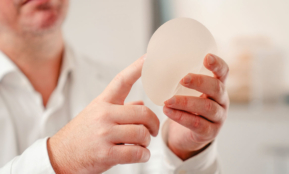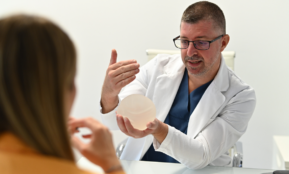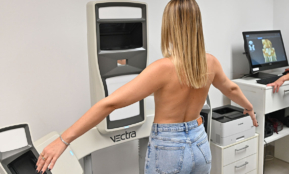Aesthetics
Face
The most modern facial treatments help you look younger, more elegant and happier.
Body
Feel comfortable in your body and correct sources of discomfort.
Chest
Make your wish for a better appearance come true and restore your self-confidence with aesthetic correction.
Hair and scalp
Minimally invasive solutions for hair loss and a natural look.
Issues
Find solutions to some of the most common aesthetic problems.
Treatments
Treatments
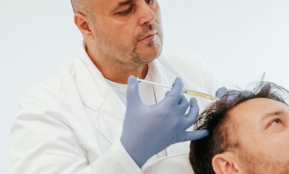
Hair and scalp mesotherapy
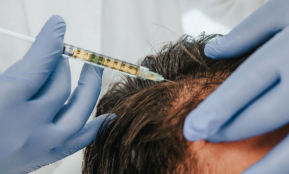
Thinning hair therapy with your own blood

Trichotest – DNA analysis of hair loss and baldness

Hair loss in women – causes and how to prevent it

Hair loss in men – causes and how to prevent it
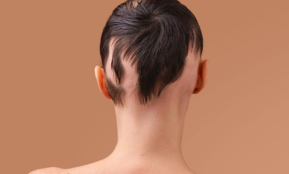
Alopecia – hair loss
FACE
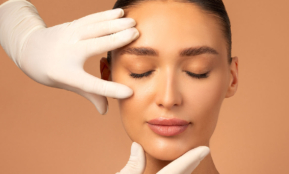
BODY
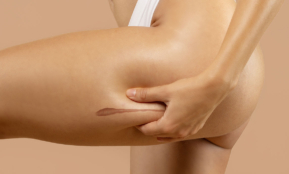
Implantology Center
Different methods of solving the problem of missing one or more teeth.
Prosthetics
The most common solution in cases of functional or aesthetic tooth damage.
Aesthetic Dentistry
Harmonious tooth shaping and tooth color correction according to your wishes.
General Dentistry
Modern and timely diagnostics, treatment and dental hygiene are the key to the health of your teeth.
Issues
Find solutions to some of the most common aesthetic problems.
About us
Locations
What is collagen and why is it important?
Collagen is a key protein in the human body that provides structural support to tissues and organs. It is the most abundant protein in the human body, making up about 30% of all proteins. Collagen is found in the skin, bones, joints, ligaments, tendons, and blood vessels.
Why is collagen important?
-
Skin support
Collagen gives the skin firmness, elasticity and youthful appearance. A decrease in collagen can cause wrinkles, sagging and loss of volume.
-
Joint and cartilage health
Collagen is essential for joint and cartilage health. It helps maintain the elasticity and strength of cartilage, which helps prevent pain and joint problems.
-
Costume support
Collagen forms the basic structure of bones and helps maintain their strength and flexibility. About 90% of bone mass is made up of collagen.
-
Hair and nail health
Collagen can support the growth and strength of hair and nails, as it contributes to the healthy structural integrity of these tissues.
Symptoms and consequences of collagen deficiency
Collagen deficiency can affect various aspects of the health and appearance of the skin, bones, joints, and other tissues in the body. Here are the symptoms and consequences of collagen deficiency:
-
Wrinkles and fine lines
Loss of collagen can cause wrinkles and fine lines to appear on the face, especially around the eyes and lips.
-
Skin laxity
The skin can become loose and lose firmness, which can result in visible sagging skin, especially on the cheeks, jawline, and neck.
-
Reduced elasticity
The skin can lose its elasticity and ability to return to its original shape after stretching or compression.
-
Joint pain
A lack of collagen can cause joint pain, stiffness and reduced mobility, as collagen helps maintain cartilage health.
-
Hair and nails
Collagen supports hair health, and a deficiency can result in slower hair growth and a greater tendency to break. Nails can become brittle, brittle and prone to damage.
How to improve collagen production?
-
Nutrition
Vitamin C is essential for collagen synthesis because it helps convert amino acids into collagen. Include foods rich in vitamin C, such as citrus fruits (oranges, grapefruit), strawberries, peppers, broccoli, and kiwi.
Collagen is made up of amino acids like glycine, proline, and lysine. Eat foods rich in these amino acids, such as chicken, fish, eggs, legumes, and dairy products.
Omega-3 fatty acids can help maintain healthy skin and joints. Include foods rich in omega-3 fatty acids, such as fish (salmon, sardines), chia seeds, flaxseeds, and walnuts.
Zinc plays a role in collagen synthesis and skin health. Include foods rich in zinc, such as nuts, seeds, meats, and whole grains. -
Retinoids
Retinoids can stimulate collagen production and improve skin texture. Use creams or serums with retinoids, such as retinol or tretinoin.
-
Hyaluronic acid
Hyaluronic acid helps maintain skin hydration and can improve its appearance.
-
Laser treatments
Laser treatments can stimulate collagen production in the skin.
-
Radio frequency
Radiofrequency uses energy to stimulate collagen production.
-
Chemical peeling
Chemical peeling can stimulate skin regeneration and collagen production.
-
Sun protection
UV radiation can accelerate the breakdown of collagen in the skin. Use a sunscreen with a high SPF and wear sun protection (hats, sunglasses).
-
Dietary supplements
Collagen supplements, such as collagen powder or capsules, can help increase collagen levels in the body.
Symptoms and consequences of collagen deficiency
A lack of collagen can have significant consequences for various aspects of the body’s health and appearance. Collagen is a key protein that provides structural support to skin, bones, joints and other tissues. When collagen production decreases, various symptoms and consequences can occur.
-
The appearance of fine lines and wrinkles
A lack of collagen can have significant consequences for various aspects of the body's health and appearance. Collagen is a key protein that provides structural support to skin, bones, joints and other tissues. When collagen production decreases, various symptoms and consequences can occur.
-
Skin laxity
The skin can become loose and lose its firmness, which can cause visible sagging of the skin, especially on the cheeks, jawline and neck.
-
Reduced elasticity
The skin loses its ability to return to its original shape after stretching or compression.
-
Reduced hair growth
Collagen helps maintain hair health, and a deficiency can result in slower hair growth and a greater tendency to break.
Myths and truths about collagen
-
Dietary supplements directly increase collagen in the skin
While collagen supplements may improve skin health, research suggests that collagen from supplements doesn't go directly into the skin. Instead, collagen is broken down into amino acids, which are then used to rebuild collagen throughout the body, including the skin.
-
Collagen is essential for skin health
Collagen is essential for maintaining skin elasticity and firmness. A decrease in collagen with age can lead to wrinkles and sagging skin. Collagen supplements can help improve hydration and reduce wrinkles.
-
A healthy lifestyle supports collagen production
A healthy lifestyle can help preserve and stimulate collagen production. Healthy sleep, sun protection, a balanced diet and avoiding smoking and excessive alcohol consumption can help preserve collagen.
-
Truth: Vitamin C is essential for collagen synthesis
Vitamin C is crucial for collagen synthesis because it helps convert amino acids into collagen. Including foods rich in vitamin C in your diet can support collagen production.
BLOG SUGGESTION


